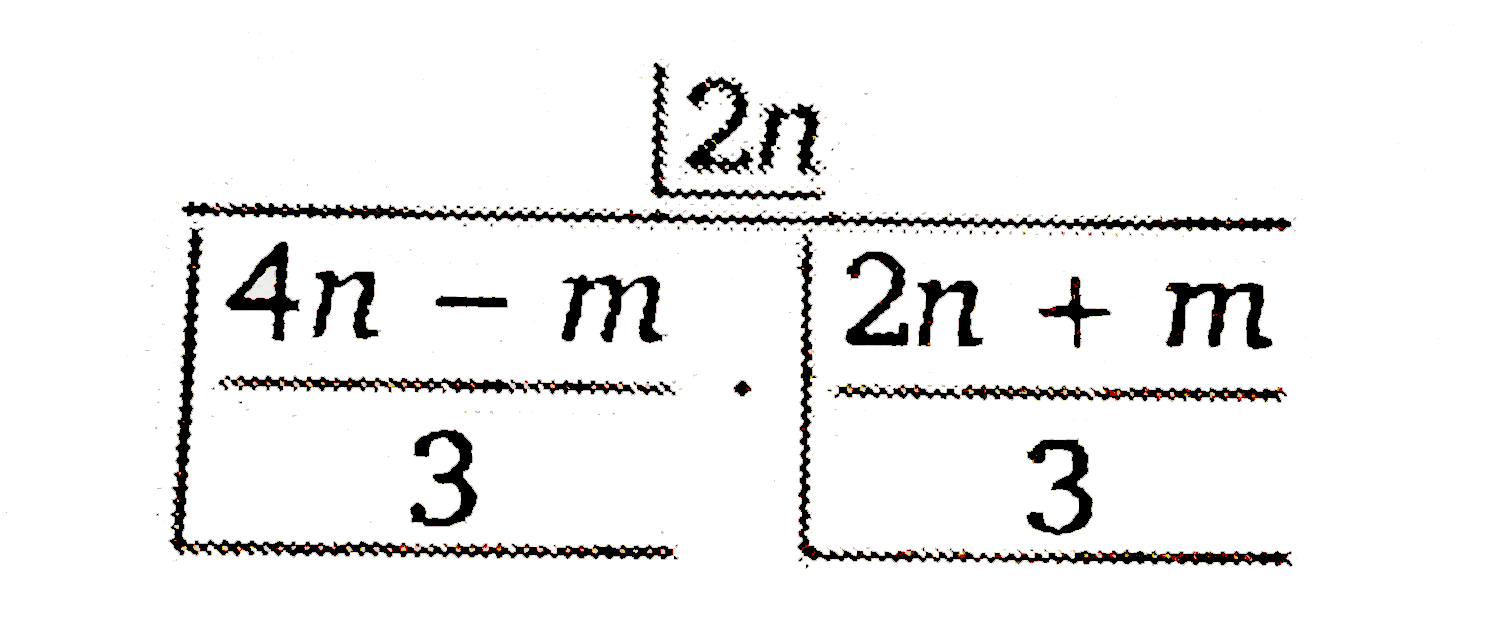If n is a positive integer and r is a non - negative integer, prove that the coefficients of xr and xn−r in the expansion of (1+x)n are equal.
Text Solution
The correct Answer is:=nCn−r
|
Topper's Solved these Questions
- BINOMIAL THEOREM, SEQUENCES AND SERIES BOOK - FULL MARKSCHAPTER - BINOMIAL THEOREM, SEQUENCES AND SERIES EXERCISE - EXERCISE 5.2
10 Videos
- BINOMIAL THEOREM, SEQUENCES AND SERIES BOOK - FULL MARKSCHAPTER - BINOMIAL THEOREM, SEQUENCES AND SERIES EXERCISE - EXERCISE 5.3
12 Videos
- BINOMIAL THEOREM, SEQUENCES AND SERIES BOOK - FULL MARKSCHAPTER - BINOMIAL THEOREM, SEQUENCES AND SERIES EXERCISE - Additional Questions Solved
31 Videos
- BASIC ALGEBRABOOK - FULL MARKSCHAPTER - BASIC ALGEBRAEXERCISE - Exercise-2.13
20 Videos
- COMBINATORICS AND MATHEMATICAL INDUCTIONBOOK - FULL MARKSCHAPTER - COMBINATORICS AND MATHEMATICAL INDUCTIONEXERCISE - ADDITIONAL QUESTIONS
33 Videos
Similar Questions
Knowledge Check
If a and b are the coefficients of xrandxn−r, respectively in the expansion of (1+x)n, then
Aa=bBa+b=n2Ca=nbDa+b=2n/2
If n is an odd positive integer, prove that the coefficients of the middle terms in the expansion of (x+y)n are equal.
View SolutionIf A and B are coefficients of xr and xn−r respectively in the expansion of (1+x)n, then
View SolutionShow that the coefficient of xr in the expansion of (x+1x)n is
View Solutionin If the coefficient of xr and xr+1 are equal in the expansion of (1+x)2n+1, then find the value of r.
View SolutionIf A and B are coefficients of xr and xn−r respectively in the expansion of (1+x)n, then
View SolutionIf 'n' is a positive integer then prove that the coefficient foxm in the expansion of (x2+1x)2n is :

View SolutionIf 'n' is a positive integer then prove that the coefficient foxm in the expansion of (x2+1x)2n is :

View Solution
